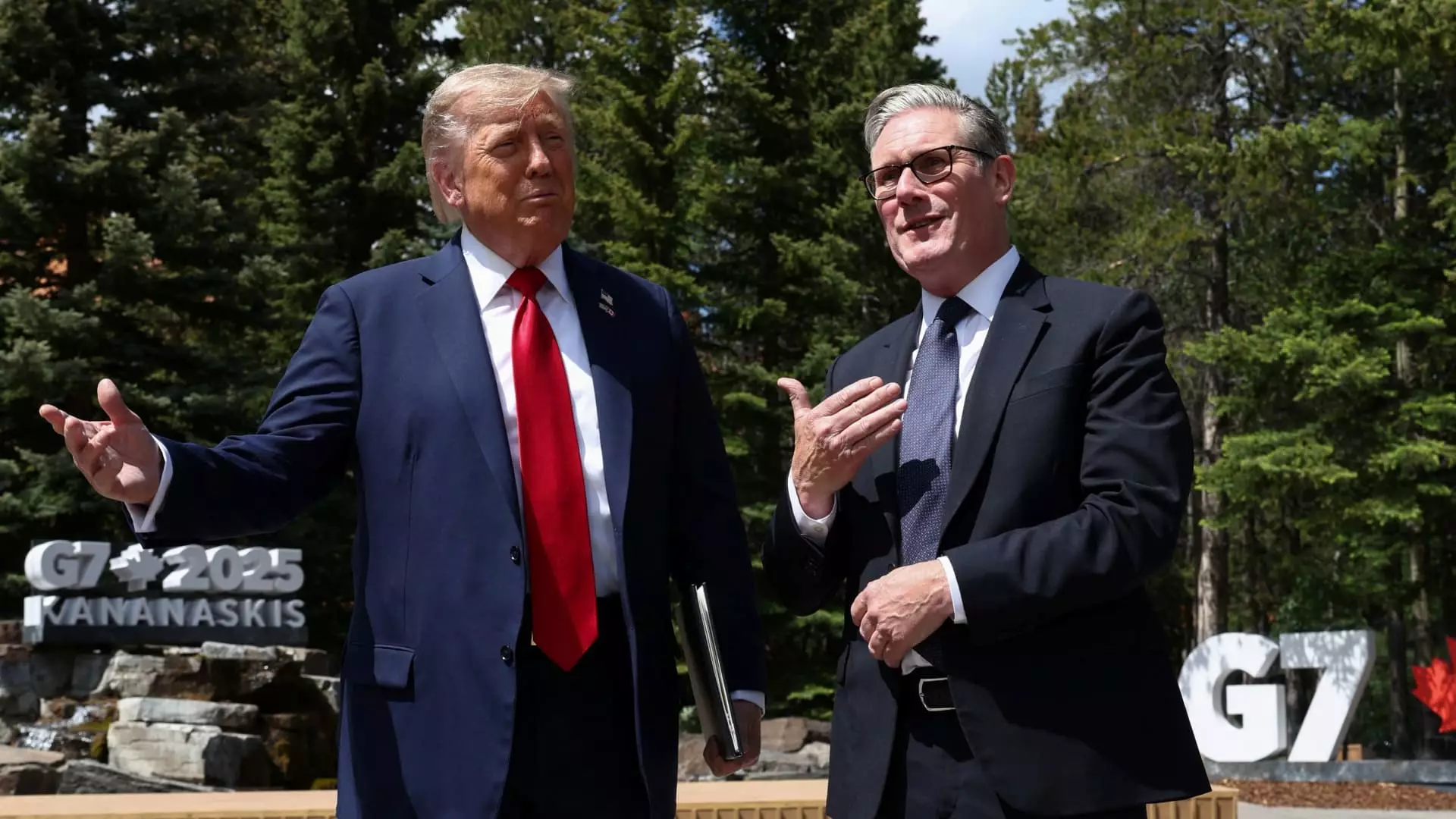The recent trade agreement between the United States and the United Kingdom gives off an air of optimism, with President Donald Trump and U.K. Prime Minister Keir Starmer declaring it a “very good day” for both nations during the G7 Summit. On the surface, the signed agreement, which appears to lower tariffs on British imports like automobiles and aerospace goods, may seem like a hallmark of successful negotiation. However, a closer examination reveals a troubling facade—this deal is merely a superficial patina on a deeper economic vulnerability, which could unravel at any moment.
The agreement reaffirms existing quotas and tariff rates while eliminating certain tariffs, yet critical industries such as pharmaceuticals have been left in the dust. Where the glitzy headlines about lowered tariffs focus on immediate benefits for carmakers and the aerospace sector, the overall picture remains shaky. By declaring the relationship with Britain as “fantastic,” Trump may effectively be waving a flag of temporary triumph, but this raises questions about the sustainability and future ramifications of such agreements.
Fragile Foundations of Trade Promises
The trade deal also includes conditions that are more stringent than they might seem at first glance. The U.S. is set to impose a quota on steel and aluminum imports from the U.K., yet this is accompanied by the stipulation that Britain must first demonstrate security on their steel supply chains. This not-so-subtle condition reflects a power dynamic that favors the U.S., suggesting that nothing in international trade is ever truly free of strings attached. In this fragile landscape, where trust and cooperation could easily be shaken, the mere existence of these conditions points to an unsettling truth that our economic relationship is more transactional than relational.
Moreover, the iron grip of the U.S. over tariff implementations and the quotas lacking clear guidelines raises concerns that this deal may serve political interests more than economic ones. As the U.S. continues to kneel before its own isolationist tendencies, the question begs: Is Britain genuinely gaining from this arrangement, or are they being left to navigate a stormy sea with no lifeboat in sight?
The Myth of Equal Partnership
The notion of equitable trade deals typically invokes an image of mutual benefits and reciprocity. Yet, this recent agreement starkly illustrates that the concept of “reciprocal access” is merely a euphemism designed to mask the unbalanced scales present in U.S.-U.K. negotiations. With Trump’s assertion that the U.K. is “very well protected”—primarily because he fancies the country—one cannot help but feel that the stakes remain tilted heavily in favor of the United States.
Furthermore, the delayed implementation this deal has experienced shows a worrying trend: It seems more like an ongoing circus of negotiations rather than a firm step toward equitable trade. Despite the proclamations of progress, there is a slippery slope underlying this agreement where industries involved could be further subjected to tariffs and market volatility.
Blind Optimism versus Reality
U.K. officials like Trade Secretary Jonathan Reynolds are singing the praises of this deal, rightfully cheering for their aerospace and automobile sectors. However, one must question the long-term viability of placing so much hope on a deal built on a foundation of uncertainty. Such blind optimism could lead to inflated expectations, which could be shattered as the U.S. administration pivots its focus or further imposes tariffs under the guise of protecting national interests.
Thus, the narrative framing this trade agreement as a monumental win begs scrutiny. Will the United Kingdom’s industries genuinely thrive in this new environment, or are they simply being set up for the next inevitable round of negotiations, where concessions are made and commitments quietly sidestepped?
In a world increasingly defined by economic interdependencies, the transactional nature behind such agreements reminds us that true partnerships demand accountability and transparency, two things that appear to be sorely lacking. The looming uncertainty in international trade dynamics now leaves both nations at risk of sailing through murky waters, driven by wishful thinking rather than grounded in pragmatic realities.


Leave a Reply